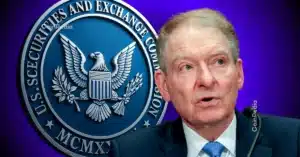North Dakota and New Hampshire Push for Bitcoin Reserves

North Dakota and New Hampshire have joined a growing list of US states introducing legislation to establish Bitcoin reserves.
This move reflects efforts to expand government resources to address economic challenges such as inflation.
Bitcoin reserve accounts have gained momentum in the US
Lawmakers in North Dakota recently introduced a proposal to integrate digital assets and precious metals into the state's investment strategy. House Concurrent Resolution 3001 directs the State Treasurer and the Board of Investments to allocate certain state funds — such as the general fund and legacy fund — to these alternative assets.
“The Legislature encourages the state treasurer and state board of investment to invest a portion of the state's general fund from the budget stabilization fund and heritage fund in digital assets and precious metals,” the bill states.
While the resolution refrains from explicitly naming bitcoin, its inclusion of digital assets reflects the growing interest in the cryptocurrency as a viable investment. Proponents believe this approach helps protect government finances from economic pressures such as inflation.
Lawmakers have introduced similar legislation in New Hampshire to establish a state bitcoin reserve. Although the bill does not mention Bitcoin by name, the requirements indicate that the top crypto will be the only cryptocurrency eligible for investment.
The law stipulates that only digital assets or stablecoins with a market capitalization of more than $500 billion in the past year are eligible for inclusion. Indeed, Bitcoin is an obvious candidate as it is the only asset in that range.
Meanwhile, the absence of Bitcoin's name on both proposals has sparked debate in the crypto community. Critics see this as a loophole to include other properties. However, supporters argue that it is a deliberate strategy to avoid political opposition.
According to Dennis Porter, a leading advocate of pro-Bitcoin policies, technology-neutral legislation often paves the way for smoother policy adoption. This approach gives legislators confidence in approving measures without unnecessary controversy.
“Some states want us to draft technology-neutral bills, which is very common in policy. It's a way to reduce political friction. Some bills are just for bitcoin. They will be, and some of them will be based on market capitalization It works,” Porter explained.
Still, the introduction of these accounts is in line with a broader trend among US states to explore Bitcoin reserves, including Texas, Florida, Pennsylvania and Alabama. These efforts appear to be fueled by President-elect Donald Trump's proposal to establish a national bitcoin reserve.
The US government currently holds nearly 200,000 BTC worth over $18 billion, making it the largest nation-state holder of Bitcoin globally. However, the 69,370 BTC seized from the Silk Road marketplace, worth nearly $6.5 billion, was approved by the outgoing Biden administration.
Matt Hougan, CIO of Bitwise, has suggested that the future administration can rediscover Bitcoin as part of a broader strategy to strengthen the country's financial position in the underground of the international cryptocurrency.
Disclaimer
Adhering to the Trust Project guidelines, BeInCrypto is committed to unbiased, transparent reporting. This news report aims to provide accurate and up-to-date information. However, readers are advised to independently verify facts and consult with professionals before making any decisions based on this content. Please note that our terms and conditions, privacy policy and disclaimer have been updated.













